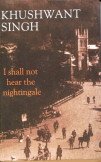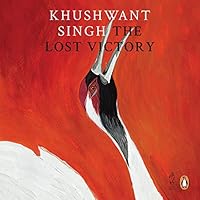Description
Khushwant Singh's phenomenal success as a writer springs from a most unwriterly virtue: he writes for the reader, not for himself. He has the knack of seeming to speak directly to the reader, shrugging himself out of the confines of the written page' Times of India I Shall Not Hear the Nightingale, Khushwant Singh's second novel, is set in Amritsar during the height of India's freedom movement, when nationalists called upon the British to -Quit India'. Sardar Buta Singh, First Class Magistrate, a man whose family is known for its loyalty to the Raj, is close to being nominated to the Queen's honours list that year. However, unknown to him, his son Sher Singh has become the leader of a group of gun-wielding, anti-British revolutionaries. When the headman of a nearby village, a police informer, goes missing, Sher Singh is arrested. If proved guilty of treason he could be sentenced to death. A disgraced Buta Singh disowns his son in order to show his continuing loyalty to the government, and his god-fearing wife Sabhrai turns to the Guru for guidance. The kindly Deputy Commissioner, John Taylor, an Englishman who is sympathetic to Indians and understands the family's predicament, offers them two alternatives: Sher Singh can either betray his comrades and save his life or else be hanged. Meanwhile, in Simla, Sher Singh's wife and sister are involved in a parallel drama of their own with Madan, a revolutionary and a rake. I Shall Not Hear the Nightingale has been widely acclaimed as Khushwant Singh's finest novel.






 Amazon UK
Amazon UK